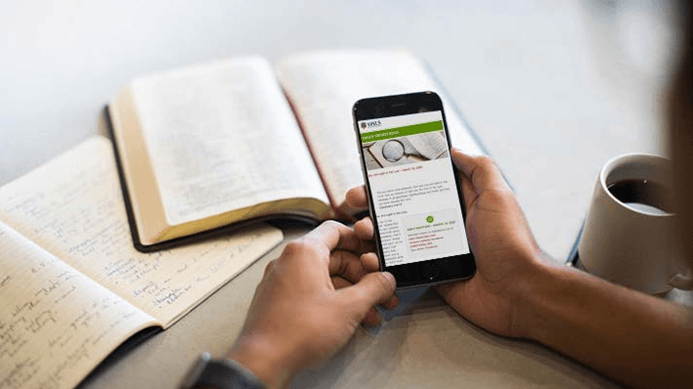For Forgiveness of Sins

You may have heard the story of the woman who is bustling about her house, cleaning it from top to bottom. “Honey, what are you doing that for?” her husband asks. “The new cleaning service will be here in half an hour.”
“That’s right,” says his wife, snapping her dust cloth. “But you don’t want them to think we need them, do you?”
It would be pretty silly to clean up just before a cleaning service arrived. There would be no point in hiring the service and, at the same time, trying to make it look like you didn’t need it. But many Lutherans take a very similar approach to coming to Holy Communion.
The Lutheran church has always emphasized proper preparation for the Lord’s Supper. The Scriptures teach that “a man ought to examine himself before he eats of the bread and drinks of the cup” (1 Corinthians 11:28). Because the Lord’s Supper can actually harm a communicant who receives it improperly, every communicant at the Lord’s table needs to ask, “Am I prepared?”
Unfortunately, many people take “Am I prepared?” to mean “Am I good enough?” They search their hearts for warm, pious feelings about God and their church. They search their consciences for uneasy feelings of guilt. They search their memories of the past week for sins they’ve committed. Then if they find some, or even if they simply find that their relationship with God or their church “doesn’t feel right” today, they decide not to commune.
The Lutheran church has always emphasized proper preparation for the Lord’s Supper.
But “Am I good enough?” is the wrong question to ask. In the Lord’s Supper we receive Christ’s body and blood, given and shed for the remission of all our sins. When Luther listed the blessings of the Lord’s Supper in his catechism—forgiveness of sins, life, and salvation—the forgiveness of sins comes first. It’s the benefit of the Sacrament that we as sinners need most. It’s the blessing from God on which all other blessings depend.
So the right question is “Do I need forgiveness?” And just as only dirty houses need cleaning, only sinners need forgiveness. The people who belong at the Lord’s Table are precisely those who sense a growing coldness in their hearts toward God and his church, whose consciences bother them, and who know of sins in their recent pasts. If you’re one of these penitent people, then come to the Lord’s Table without delay! His forgiveness will cleanse you. His peace will surround you. His Spirit will strengthen your resolve to battle against sin more vigorously in the week ahead.
Your spiritual house will be spotless, inside and out— and without lifting a finger. You have received the body and blood of Jesus, given and shed for you for the remission of sins.
© 2004 Northwestern Publishing House. All rights reserved.

